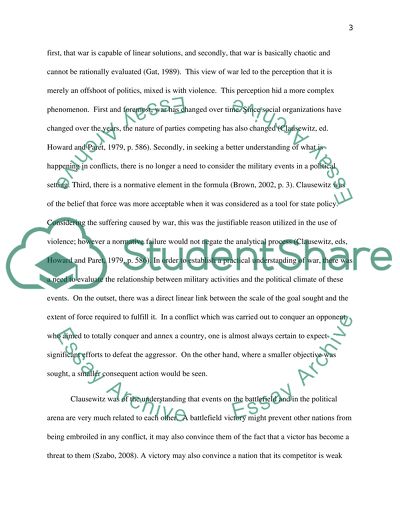Cite this document
(“To what extent does Karl von Clausewitz explain the changing nature of Essay”, n.d.)
Retrieved de https://studentshare.org/history/1390565-to-what-extent-does-karl-von-clausewitz-explain-the-changing-nature-of-warfare-after-1798
Retrieved de https://studentshare.org/history/1390565-to-what-extent-does-karl-von-clausewitz-explain-the-changing-nature-of-warfare-after-1798
(To What Extent Does Karl Von Clausewitz Explain the Changing Nature of Essay)
https://studentshare.org/history/1390565-to-what-extent-does-karl-von-clausewitz-explain-the-changing-nature-of-warfare-after-1798.
https://studentshare.org/history/1390565-to-what-extent-does-karl-von-clausewitz-explain-the-changing-nature-of-warfare-after-1798.
“To What Extent Does Karl Von Clausewitz Explain the Changing Nature of Essay”, n.d. https://studentshare.org/history/1390565-to-what-extent-does-karl-von-clausewitz-explain-the-changing-nature-of-warfare-after-1798.


